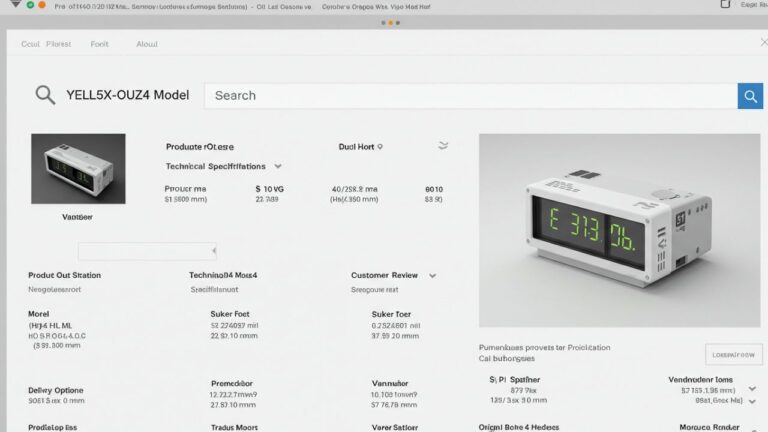
Give a Boost NYT Crossword
Introduction Give a Boost NYT Crossword
If you’re eager to give a boost NYT Crossword solving skills, you’ve come to the right place. This legendary puzzle deserves attention. Many solvers find themselves stuck, frustrated, or simply unsure where to begin each day. Thankfully, there’s good news. With the right mindset, strategy, and some practical techniques, you’ll notice massive improvement in no time. Let’s explore how to take your crossword game from average to amazing.
🔎 Understanding the NYT Crossword Culture
The New York Times Crossword represents more than a simple puzzle. It’s a cultural icon that has challenged minds for decades.
-
Daily puzzles increase in difficulty from Monday through Saturday.
-
Sunday puzzles remain larger and thematic, offering a unique challenge.
-
Solvers feel a sense of pride when completing harder grids successfully.
Those who enjoy crosswords regularly often refer to it as a mental workout.
🎯 Set a Solving Goal Each Day
Always begin each puzzle with a clear intention. You don’t need to finish the entire grid every time.
-
Decide whether you want to complete a corner, solve the theme, or just get five answers.
-
Breaking it down makes it manageable and more enjoyable.
It’s much easier to track your progress when you know your aim. Set realistic goals daily for improvement.
🧠 Boost Vocabulary with Intentional Reading
If you want to excel at crosswords, read widely and intentionally. The more words you know, the better your game becomes.
-
Choose articles, fiction, and non-fiction across different topics.
-
Pay attention to uncommon or tricky words that often appear in puzzles.
This method directly supports your brain’s retrieval system for answers under pressure.
🛠️ Practice with Easier Grids First
Many solvers jump into Friday or Saturday puzzles without mastering the basics. That leads to discouragement very quickly.
-
Always start with Monday puzzles and work your way up through the week.
-
The progression helps you recognize patterns, clue styles, and word tricks.
Doing this builds confidence and momentum.
🧩 Understand Crossword Clue Types
Every clue has its style, and recognizing those types can save you precious time.
-
Straight clues describe the answer literally.
-
Cryptic clues play with word meanings and require lateral thinking.
-
Abbreviated clues usually signal an acronym or short form.
Learn to identify clue structures faster to avoid overthinking.
🔄 Revisit Clues You Skipped
If an answer seems impossible, skip it and move forward. You’ll often solve it later with new information.
-
New letters from other words make the skipped clue easier.
-
Fresh eyes and different perspectives provide surprising insight.
This is a core strategy used by experienced solvers every day.
🧾 Fill in the Blanks First
Clues with blanks tend to be more straightforward. Solvers often use them to gain a foothold in a new grid.
-
For example, “___ of the Tiger” clearly hints at “Eye.”
-
These clues help you anchor answers that unlock nearby words.
Use them to create momentum in the puzzle.
📚 Master Common Crossword Words
The New York Times Crossword uses certain answers repeatedly. Knowing them improves your chances of success significantly.
-
Words like “era,” “ore,” “eel,” and “aria” appear more often than you’d expect.
-
Keep a notebook or spreadsheet of recurring answers for quick reference.
Building a base vocabulary like this improves speed.
🧭 Use Crossword-Specific Tools Wisely
Online resources can help, but avoid becoming overly reliant on them. Use them for learning rather than just answer-checking.
-
Apps like Rex Parker’s Blog or XWord Info offer clue breakdowns and solver insights.
-
After finishing, review clues you missed to learn from them.
This approach turns mistakes into learning opportunities.
🧩 Look for Crossword Themes and Tricks
Tuesday through Sunday puzzles often follow a theme. Spotting that theme early can be a game-changer.
-
The theme might involve puns, wordplay, or hidden words.
-
Solve one themed clue, and others fall into place more quickly.
Identifying these patterns saves loads of time and frustration.
🕰️ Time Yourself Weekly for Growth
Tracking your time gives you motivation and shows real progress. But don’t stress about the clock.
-
Choose one puzzle per week to solve quickly and note your time.
-
Try to reduce that time slightly each week without rushing.
This keeps your mind sharp and focused on improvement.
🧠 Use Mental Imagery for Clues
Some clues may benefit from visualization. Picture the clue and imagine different contexts to find connections.
-
For example, “King’s seat” could be “throne” or “court.”
-
Thinking visually leads to alternate meanings you might otherwise miss.
It’s a subtle yet powerful way to enhance your problem-solving.
🤝 Join Online Crossword Communities
Connect with other solvers through forums, social media, or solving groups. They can offer tips and encouragement.
-
Reddit’s r/crossword and the NYT Crossword Facebook Group are great places to start.
-
Engaging with a community makes solving more social and fun.
Learning from others speeds up the mastery process.
📆 Be Consistent, Not Perfect
Solving every day builds habit and fluency. Even if you solve just five clues, you’ve improved for that day.
-
Crossword solving is a skill, not a talent.
-
Frequent practice builds the muscle memory needed for faster solving.
Think long-term and be proud of small wins daily.
🧠 Train Your Brain Outside the Puzzle
Doing brain games, sudoku, or memory challenges also helps boost crossword skills.
-
These exercises enhance pattern recognition, focus, and short-term memory.
-
Add them into your weekly routine for variety and fun.
It keeps your brain flexible and ready for crossword challenges.
💡 Think Like a Puzzle Editor
Crossword editors love cleverness. When you’re solving, try imagining what pun or twist they might have used.
-
NYT puzzles often use playful or unexpected definitions.
-
Always consider the double meaning of clues, especially midweek and beyond.
This mental switch enhances your decoding ability.
✅ Final Thoughts: Your Daily Boost
To give a boost NYT Crossword journey, consistency, curiosity, and practice matter most. Stay relaxed, enjoy the learning, and celebrate even the smallest victories. You’ll become quicker, sharper, and maybe even an addict—in a good way!
❓ Frequently Asked Questions
1. What’s the easiest day to solve the NYT Crossword?
Mondays are the easiest. Difficulty increases each day, with Saturday being the toughest and Sunday the largest.
2. How long should it take to finish a NYT Crossword?
Beginners might take over 30 minutes. Experts often finish Mondays in under 5 minutes. Time varies by experience.
3. Do crossword solvers need a strong vocabulary?
Yes, but more importantly, they need pattern recognition, curiosity, and a willingness to learn from mistakes.
4. How can I solve Saturday puzzles better?
Practice during the week, learn clue patterns, and revisit difficult clues. Don’t expect immediate mastery—it’s the hardest puzzle.
5. Can I use online tools to solve crosswords?
Yes, but use them for learning, not shortcuts. Reviewing tough clues after solving helps build long-term skill.
6. Why do some words repeat often in puzzles?
Certain words fit grid patterns easily, making them common. These are sometimes called “crosswordese” and are worth memorizing.







